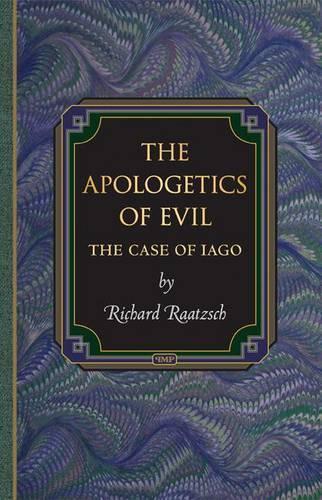Full Product Details
Author: Richard Raatzsch ,
Ladislaus Löb
Publisher: Princeton University Press
Imprint: Princeton University Press
Volume: 28
Dimensions:
Width: 14.00cm
, Height: 1.50cm
, Length: 21.60cm
Weight: 0.028kg
ISBN: 9780691137339
ISBN 10: 0691137331
Pages: 128
Publication Date: 26 July 2009
Audience:
College/higher education
,
Professional and scholarly
,
General/trade
,
Tertiary & Higher Education
,
Professional & Vocational
Format: Hardback
Publisher's Status: Active
Availability: Manufactured on demand

We will order this item for you from a manufactured on demand supplier.
Language: English
Reviews
What is evil? What are its forms? How is it motivated? These are questions of the greatest human significance and Raatzsch's treatment of them is sensitive, imaginative, and broadly based. This book brings together different lines of argument from epistemology, moral philosophy, and philosophy of mind in a highly compact and supercharged, yet fully comprehensible form. The result packs an enormous intellectual punch. -Raymond Geuss, University of Cambridge This original, deeply felt, clearly written, and well-argued book combines Shakespearean analysis, moral philosophy, psychology, and philosophy of literature-all in a succinct, unified, and impressive way. -Richard Eldridge, Swarthmore College
This original, deeply felt, clearly written, and well-argued book combines Shakespearean analysis, moral philosophy, psychology, and philosophy of literature-all in a succinct, unified, and impressive way. -Richard Eldridge, Swarthmore College What is evil? What are its forms? How is it motivated? These are questions of the greatest human significance and Raatzsch's treatment of them is sensitive, imaginative, and broadly based. This book brings together different lines of argument from epistemology, moral philosophy, and philosophy of mind in a highly compact and supercharged, yet fully comprehensible form. The result packs an enormous intellectual punch. -Raymond Geuss, University of Cambridge
This original, deeply felt, clearly written, and well-argued book combines Shakespearean analysis, moral philosophy, psychology, and philosophy of literature--all in a succinct, unified, and impressive way. --Richard Eldridge, Swarthmore College What is evil? What are its forms? How is it motivated? These are questions of the greatest human significance and Raatzsch's treatment of them is sensitive, imaginative, and broadly based. This book brings together different lines of argument from epistemology, moral philosophy, and philosophy of mind in a highly compact and supercharged, yet fully comprehensible form. The result packs an enormous intellectual punch. --Raymond Geuss, University of Cambridge
Author Information
Richard Raatzsch holds the chair for practical philosophy at the European Business School in Wiesbaden, Germany.




